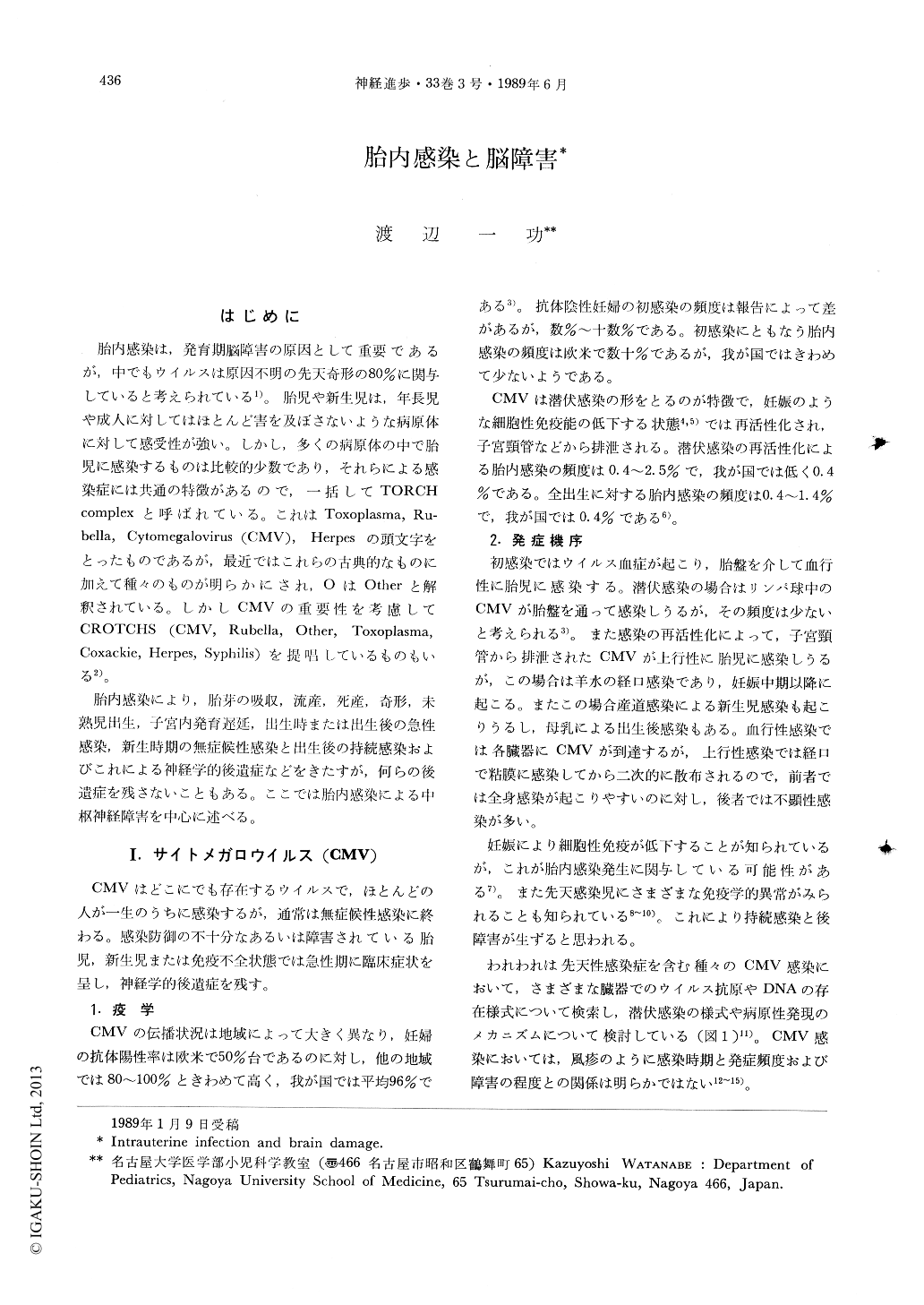Japanese
English
- 有料閲覧
- Abstract 文献概要
- 1ページ目 Look Inside
はじめに
胎内感染は,発育期脳障害の原因として重要であるが,中でもウイルスは原因不明の先天奇形の80%に関与していると考えられている1)。胎児や新生児は,年長児や成人に対してはほとんど害を及ぼさないような病原体に対して感受性が強い。しかし,多くの病原体の中で胎児に感染するものは比較的少数であり,それらによる感染症には共通の特微があるので,一括してTORCHcomplexと呼ばれている。これはToxoplasma,Rubella,Cytomegalovirus(CMV),Herpesの頭文字をとったものであるが,最近ではこれらの古典的なものに加えて種々のものが明らかにされ,OはOtherと解釈されている。しかしCMVの重要性を考慮してCROTCHS(CMV,Rubella,Other,Toxoplasma,Coxackie,Herpes,Syphilis)を提唱しているものもいる2)。
胎内感染により,胎芽の吸収,流産,死産,奇形,未熟児出生,子宮内発育遅延,出生時または出生後の急性感染,新生時期の無症候性感染と出生後の持続感染およびこれによる神経学的後遺症などをきたすが,何らの後遺症を残さないこともある。ここでは胎内感染による中枢神経障害を中心に述べる。
Intrauterine infection is one of the important causes of developmental disorders. Among various agents affecting pregnant women, relatively a few causes fetal infection and brain damage and they are collectively called TORCH complex (Toxoplasma, Other, Rubella, Cytomegalovirus, Herpes) because of common features.
Cytomegalovirus (CMV) is the most common cause of viral infection in the mother and fetus. The incidence of seroimmunity to CMV among pregnant women is very high (96%) in Japan and most congenital infection is associated with recurrent infection during pregnancy.

Copyright © 1989, Igaku-Shoin Ltd. All rights reserved.


